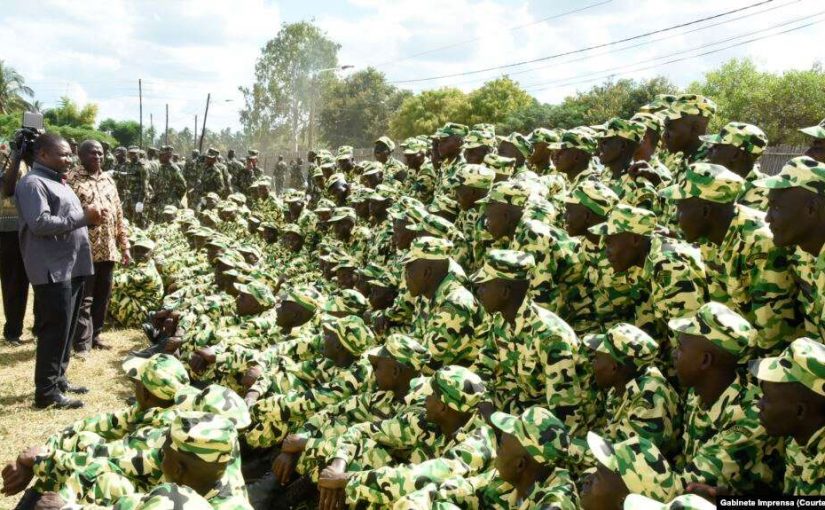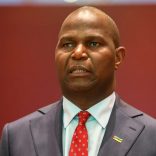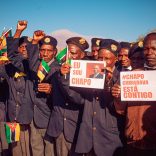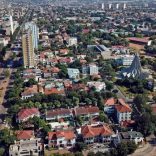Daniel Chapo warns that climate change is global and calls for stronger multilateralism
Nyusi has grounds for claiming that the war in Cabo Delgado supports the ego of elites, analysts say – Listen

FILE PHOTO - Filipe Nyusi and young soldiers in Montepuez, Cabo Delgado province. [File photo: Voa Portugues]
The instability in Cabo Delgado province continues to worry Mozambicans, and the President Filipe Nyusi has ideas about who may be behind the insurgency in that part of the country.
“Mozambicans will not repeatedly tolerate the blackmail of cyclical warfare by groups of individuals manipulated to support the ego of internal and external elites,” the president said recently.
For Calton Cadeado and Muhamed Yassine, both professors of international relations, Nyusi has hardened his position, but has not yet concretely identified the authors of the attacks.
“It is not the first time that the president has spoken about internal players (…) who are fuelling the conflict, but this time the big difference is the tone,” Cadeado says. “The President of the Republic is, after all, one of the organs of sovereign authority [in the country, and according to Constitution of the Republic of Mozambique]. He can only have said that based on information provided by the security services,” says Yassine.
“Last week,” Yassine continues, “the President of the Republic said that there are military elites who benefit from the war, who put money in their pockets as a result of the war; so let’s assume that the President of the Republic has been well advised and has already realised the real dimension of the Cabo Delgado problem.”
Journalist Alexandre Chiúre says that he was surprised by the president’s statement, since “what we were told was that the attackers were “faceless” – that it was not known who they were”.
Last week, the United Nations linked the attacks to drug trafficking in the region, a hypothesis not ruled out by our analysts.
Yassine says that the “weak border protection – in this case ‘an open border’ in the Namoto region between Mozambique and Tanzania,” may be contributing to the region being “a significant corridor for drug trafficking”.
For this analyst, it is necessary to consider two aspects. “Mozambique must be open to accepting United Nations collaboration to combat drug trafficking, which is a law that the country has, but [the country] has never asked for [such] collaboration; and the step that Mozambique has already taken at the SADC Troika level, which is to ask countries in the region to help combat terrorism.”
Meanwhile, Calton Cadeado contextualises the United Nations report as “the new wars of today, which are a mixture involving terrorism, drug trafficking and organised crime; that is, many things, of which you can no longer see a frontier where something starts and another thing ends”.
“If this United Nations report is right, we can see what is happening in Cabo Delgado in the context of Mary Kaldor’s theory of ‘New Wars’.”












Leave a Reply
Be the First to Comment!
You must be logged in to post a comment.
You must be logged in to post a comment.